TV debates: Ed Miliband's counter-attack on Jeremy Paxman beats David Cameron's bore-draw tactics
Polls hand the first showdown to the Prime Minister but Labour leader is slowly closing the gigantic gap in personal ratings
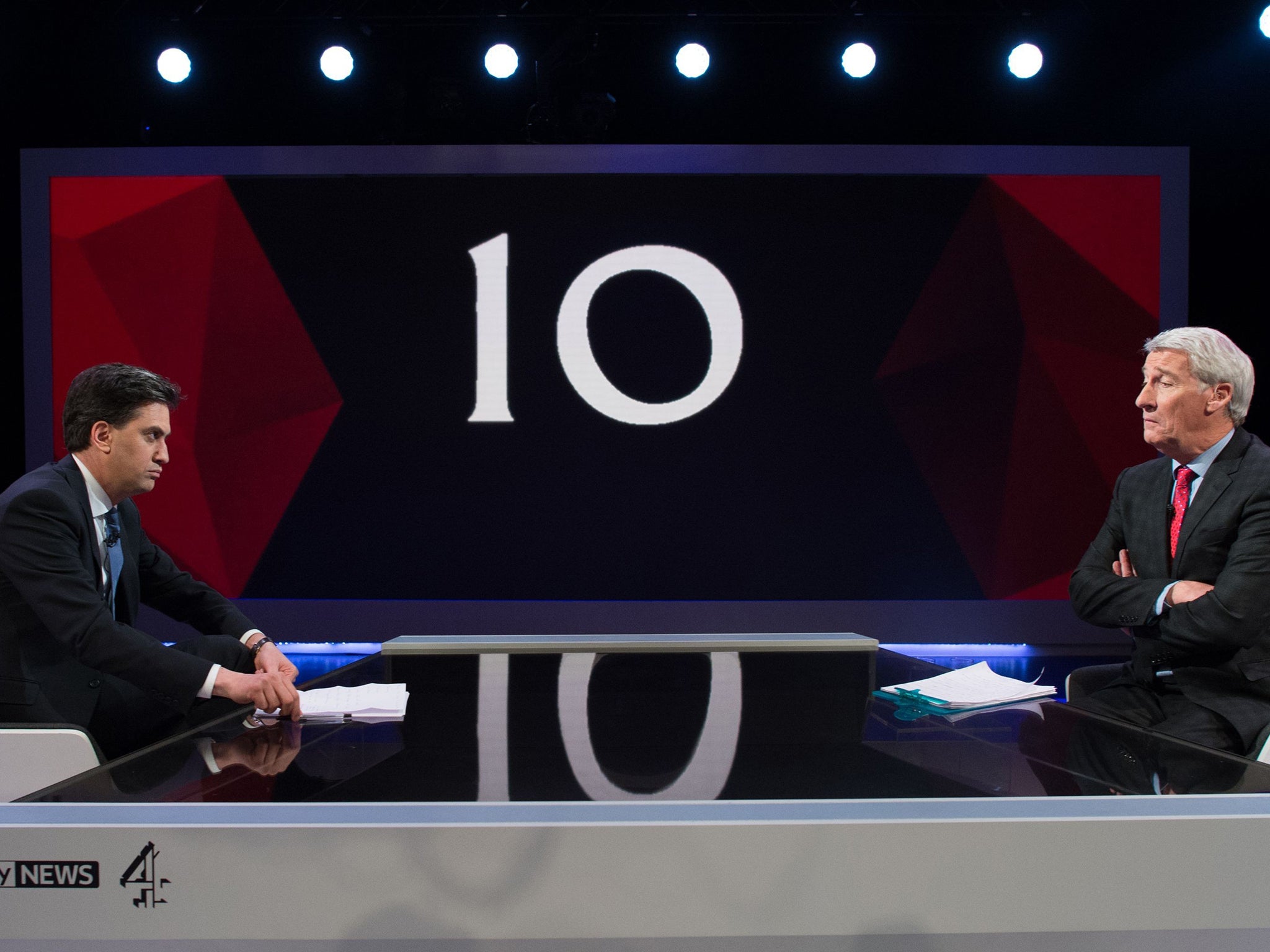
Your support helps us to tell the story
From reproductive rights to climate change to Big Tech, The Independent is on the ground when the story is developing. Whether it's investigating the financials of Elon Musk's pro-Trump PAC or producing our latest documentary, 'The A Word', which shines a light on the American women fighting for reproductive rights, we know how important it is to parse out the facts from the messaging.
At such a critical moment in US history, we need reporters on the ground. Your donation allows us to keep sending journalists to speak to both sides of the story.
The Independent is trusted by Americans across the entire political spectrum. And unlike many other quality news outlets, we choose not to lock Americans out of our reporting and analysis with paywalls. We believe quality journalism should be available to everyone, paid for by those who can afford it.
Your support makes all the difference.For all the pre-match bluster and predictions of a bore-draw, the first TV showdown between David Cameron and Ed Miliband was surprisingly fun, informative and engaging.
Yes it was pathetic that the two didn't go head-to-head despite being in the same TV studio at the same time, but we see that dual every week at Prime Minister’s Questions and all we get is a shouting match.
What we don’t see every week is Jeremy Paxman grilling them one-on-one, or Kay Burley revealing her sympathy for Mother Miliband.
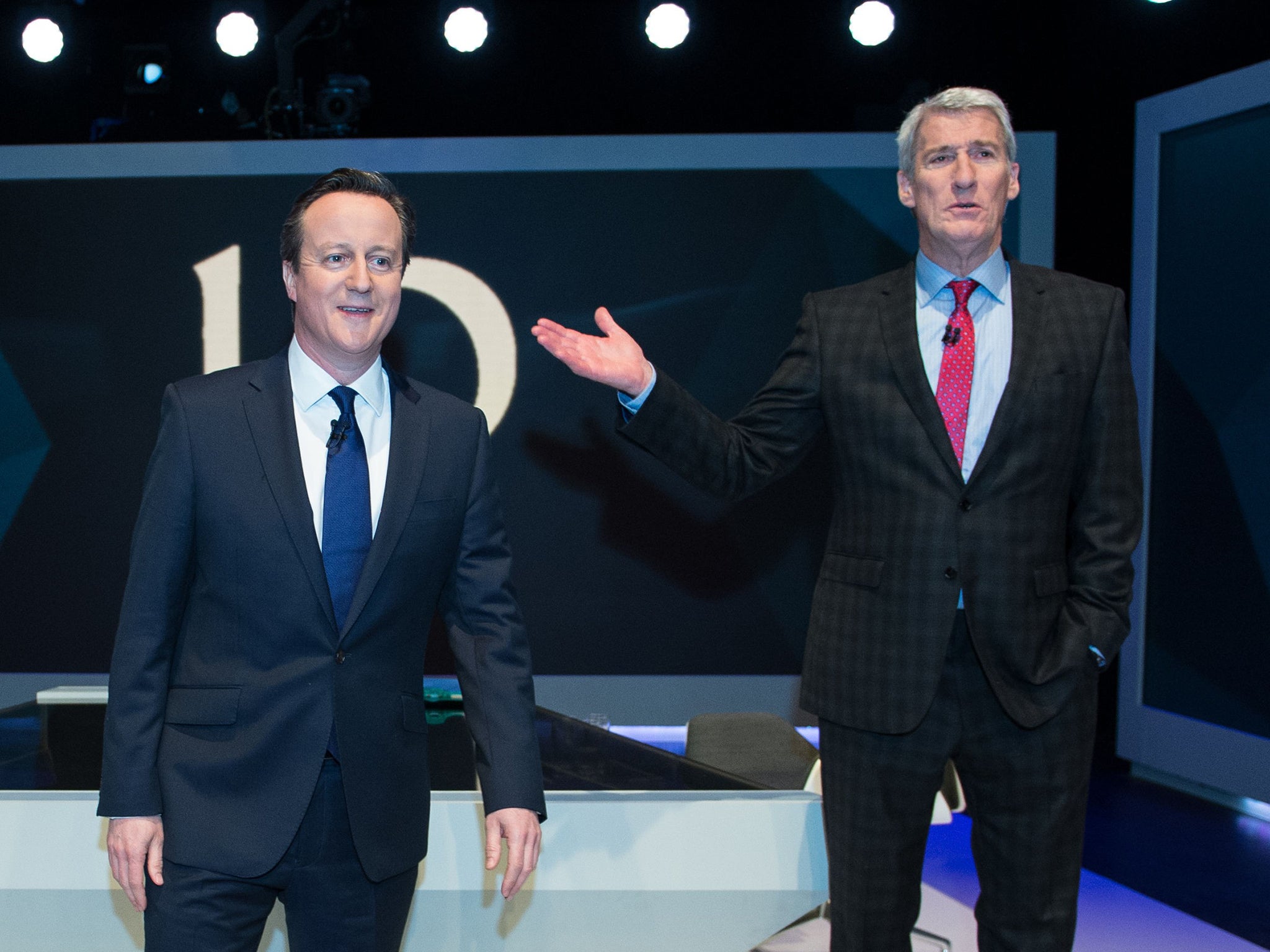
What we always like to see is how our political leaders cope under pressure, out of their comfort zone.
We did not see that during the Q&A sessions.
But we certainly did when the pair sat down opposite Paxman.
The Prime Minister had barely had time to breathe before Mr Paxman fired at him: “how many more food banks are there in the UK than in 2010?” He struggled to answer, wriggling from one side of his chair to the other while he tried to think of the right way to respond, rather than the right answer.
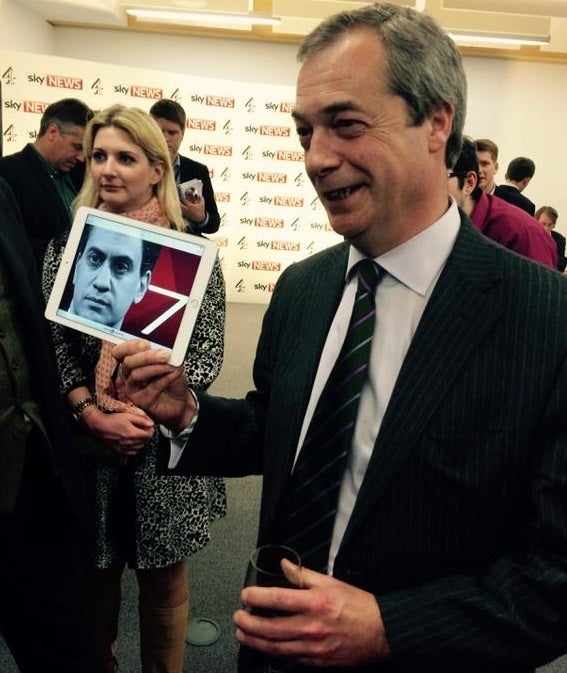
“Would you be able to work on a zero-hours contract?” He failed to give an answer three times, before finally saying he would not be able to work on an exclusive zero-hours contract, suddenly remembering a policy his government had introduced on this subject.
He was also flummoxed by Mr Paxman asking him what his biggest foreign policy failure was. He was proud to have cut Britain’s contributions to the EU, spared the UK from bailing out Greece and also claimed his decision to intervene in Libya was proof of a successful foreign policy, which appears fanciful at best with hindsight.
“What would you do again in government if you had the chance to do it again?” Remarkably Cameron gave the hilarious answer that he wished he had made Prime Minister’s Questions quieter.
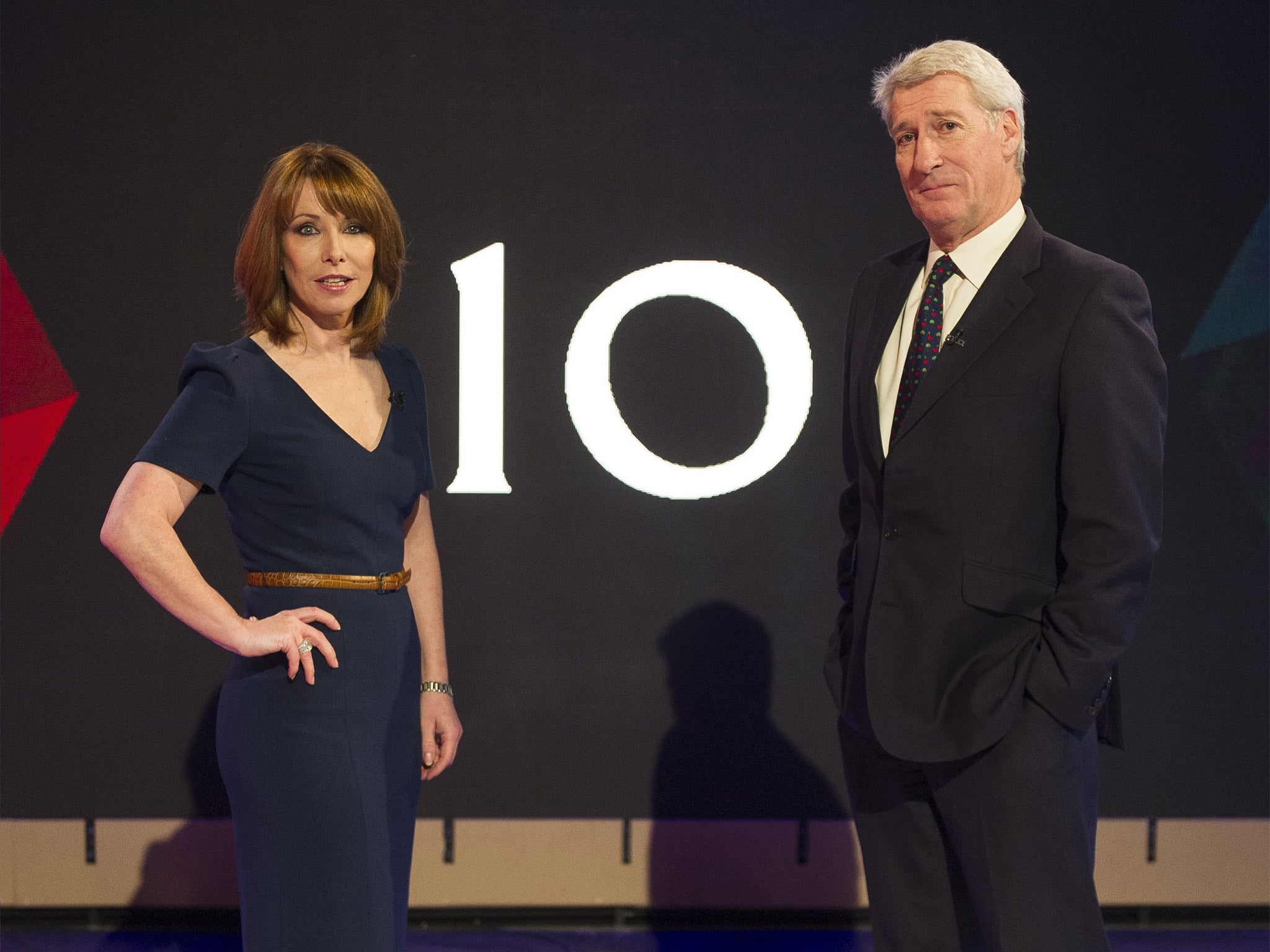
It did not start well for Miliband. Asked why he was “so gloomy” in the first Q&A question, the only way was up.
And despite struggling with the Q&A, up he went.
He did a Paxman on Jeremy on more than one occasion.
"You're important Jeremy, but not that important," Miliband fired back at him when challenged to give details of how he would go about forming a Coalition government.
Miliband certainly did not treat it like a job interview. “Now you're asking yourself questions,” he zinged back at Paxman as it began to get confusing who was interviewing who.
“Am I tough enough? Hell yes I'm tough enough," Miliband declared when challenged over whether he would stand up to the likes of Vladimir Putin on the world stage.
He floundered when challenged as to whether his party’s mansion tax policy was designed to transfer money from the South East to the Scottish NHS – a claim made by Scottish Labour leader Jim Murphy.
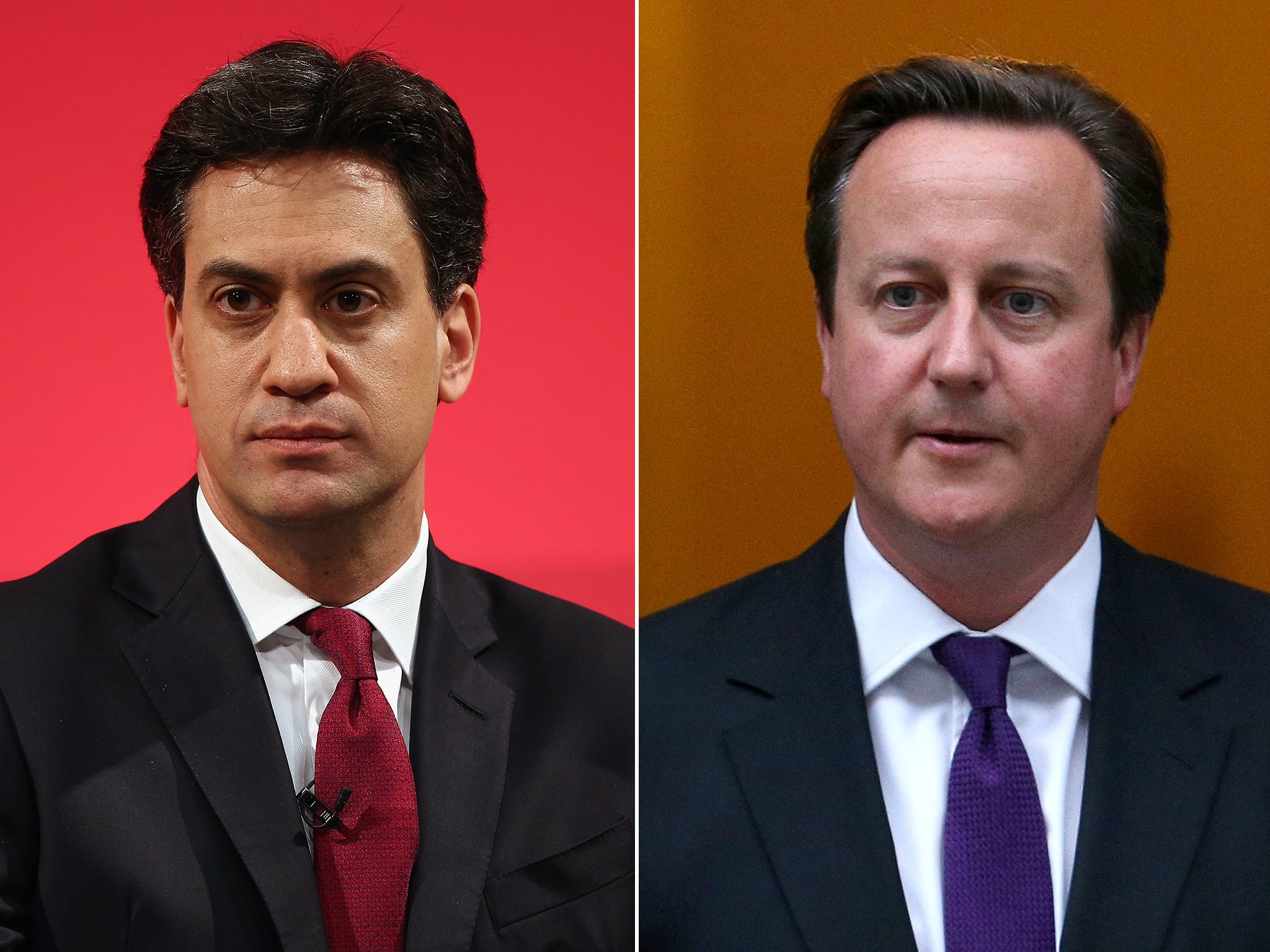
But he recovered by saying it was a policy that showed why the UK as a union of nations worked, stressing the redistributive nature of what Labour could offer.
The only moment in either Q&As that was revealing was when Miliband explained how his relationship with his brother David was “healing”, a significant use of the present tense when we all thought it had “healed”.
It brought a fantastic response from Kay Burley: “Your poor mum”.
What the Q&A showed was why we leave the questioning to the professionals. It was a shame we had to endure 40 minutes of Question Time-style questions when 40 more minutes of Paxman was what everyone wanted.
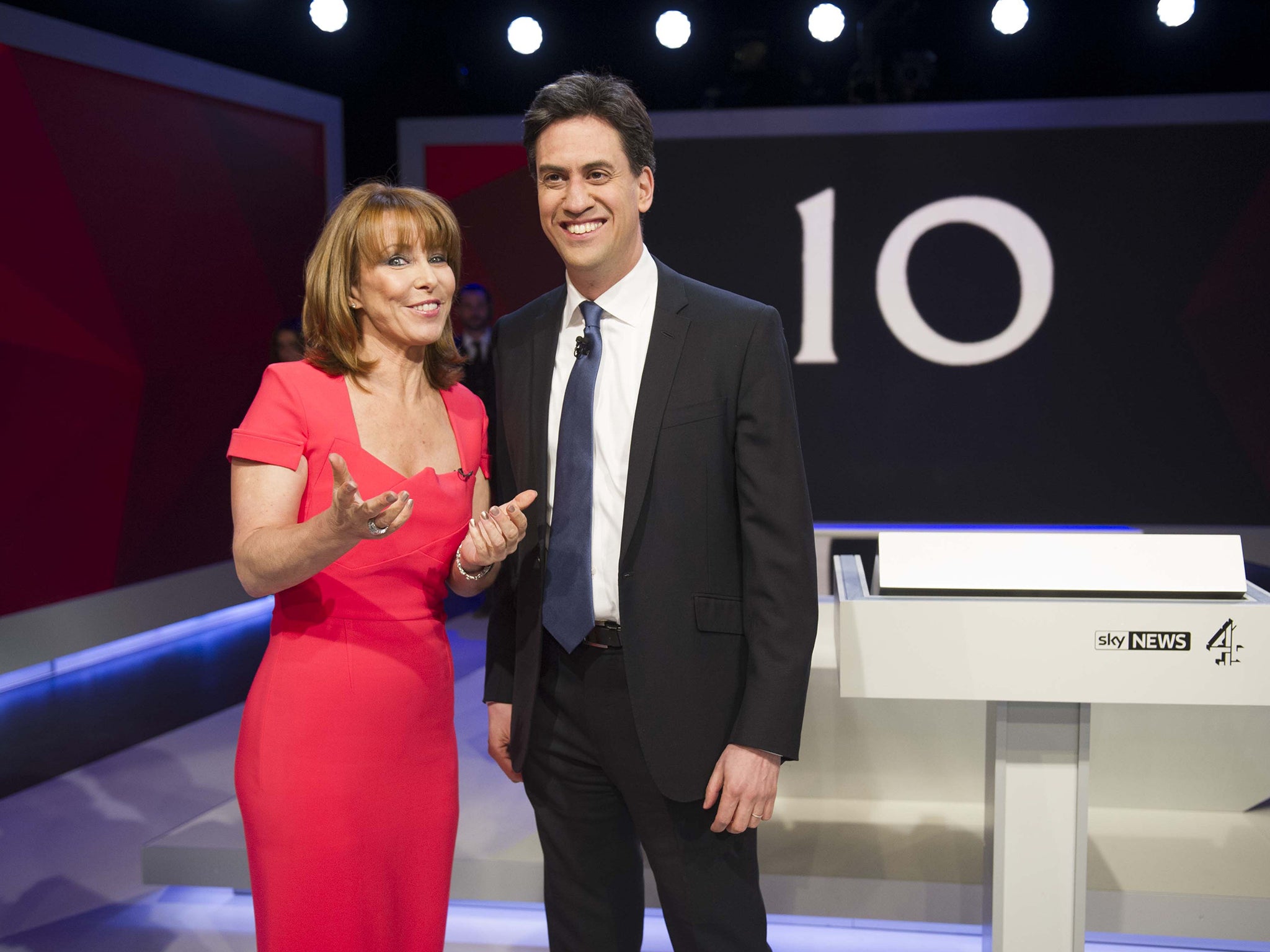
Cameron was able to suddenly switch to the smooth and controlling operator that we are accustomed to, trying to prolong his answers to bore the nation while Miliband was peppered with many of the usual questions over his brother, his weirdness and vague words about a fairer Britain.
We may not have learnt anything in terms of policy, but even in a TV debate we wouldn’t. Whether we like it or not, people like to see the human side of politicians, and with Miliband we saw he was more of a man than the Wallace he is usually presented as.
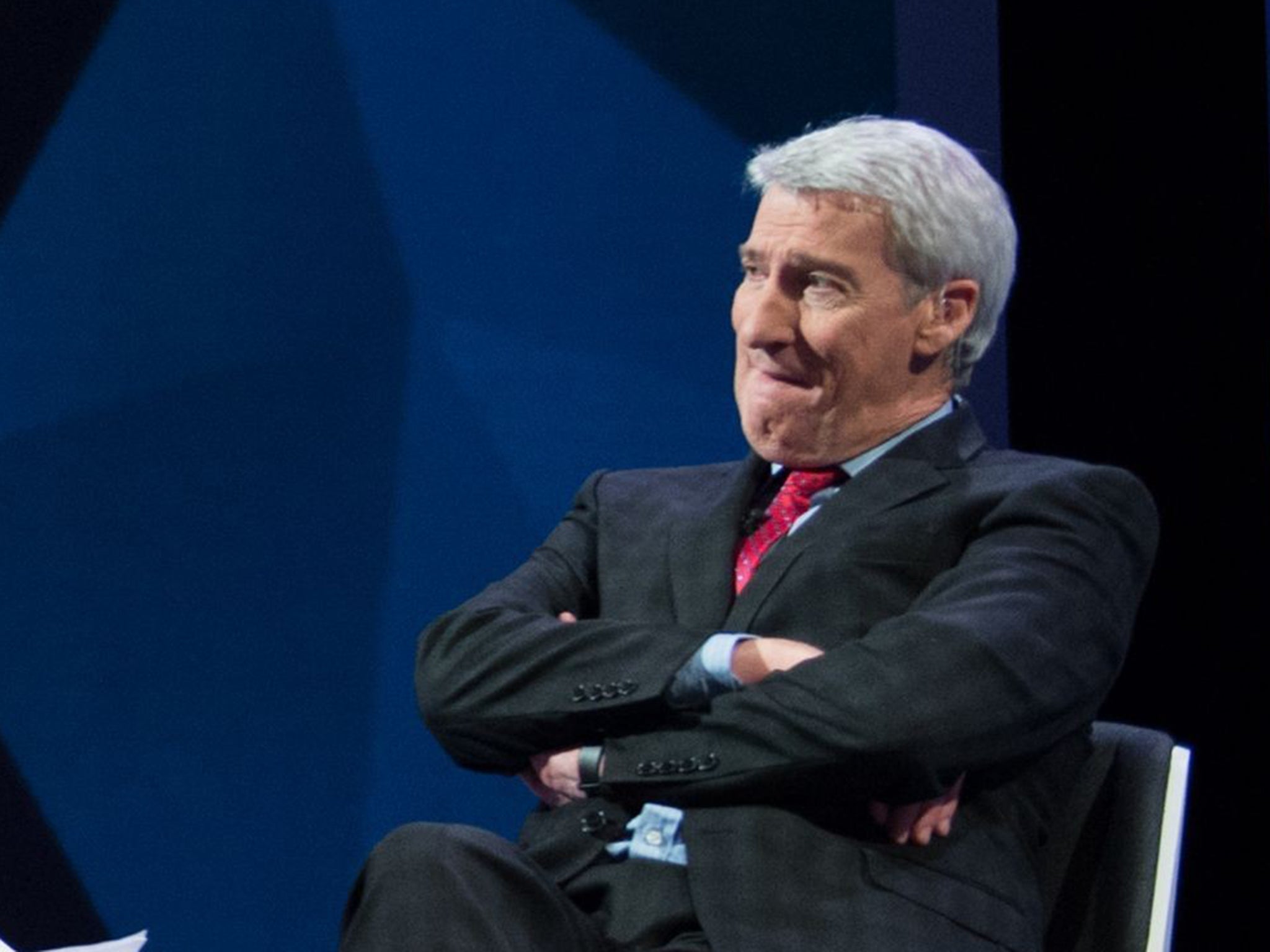
And if the first polls following the showdown were anything to go by, we discovered Miliband to be more popular than the abysmal approval ratings have given him throughout his leadership.
Yes he lost the overall ICM poll by 54 per cent to 46, but that eight-point deficit looks much healthier than the minus 55 approval rating he received at the end of last year.
And crucially, a poll of undecided voters shows that following the Battle For Number 10 show, Miliband has a lead of 56-30 over Cameron.
Slowly but surely Miliband is shifting the public’s perception of him.
Join our commenting forum
Join thought-provoking conversations, follow other Independent readers and see their replies
Comments